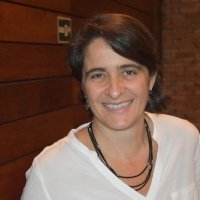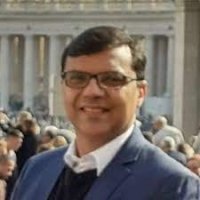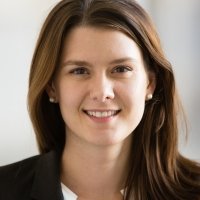Seeing the Forest and the Trees: Climate Ambition and Development in the Brazilian Amazon
On April 22, forty leaders from around the world met in a virtual summit at the invitation of U.S. President Joe Biden to discuss the state of global climate policy and the path to net zero carbon emissions. Brazil is a key actor in climate negotiations due to its sovereignty over 60 percent of the Amazon Rainforest and its agricultural and energy heft, but the country’s commitments to this effort are in doubt. In the last two years, deforestation has increased substantially in the Amazon. Yet at the same time, the threat of economic action by the United States and Europe, combined with growing awareness of the urgency and scale of the challenge, has mobilized a higher level of climate policy ambition within Brazilian society, as diverse stakeholders in the private sector and civil society drive action. As climate negotiations move forward, the voices of Amazon residents and subnational governments will be critical to any plan involving the region.
Watch the event video or read through the selected quotes below to learn more about will take to reduce deforestation and promote carbon-neutral, equitable development pathways in the Amazon—for the benefit of local populations, the Brazilian economy, and the country’s international standing.
This event was organized as part of our partnership with Uma Concertação Pela Amazônia.
Speaker Quotes
Tatiana Schor
“Before we start building public policies on sustainable development, we have to build a narrative, and this narrative has to have principles. [...] We know not everyone's going to be the same way, talk in the same language or is going to have the same objectives. But, it is very important that we can build a perspective where everybody agrees and it's very important that we are able to attract to this discussion different actors because the Amazon is complex.” (Transl: “Antes de começarmos a construir políticas públicas de desenvolvimento sustentável, temos que construir uma narrativa, e essa narrativa tem que ter princípios. [...] a gente sabe que nem todo mundo vai ser do mesmo jeito, falar na mesma língua ou ter os mesmos objetivos. Mas, é muito importante que possamos construir uma perspectiva em que todos concordem e é muito importante que sejamos capazes de atrair para esta discussão diferentes atores porque a Amazônia é complexa".)
“When we're thinking about the forest and the Amazon, we do believe the Amazon is important for humanity [...] in many areas: health, climate change, social, security populations, traditional populations. And any policy we build, [...] we cannot leave anyone behind [...] We should not think about sustainable development where we leave significant parts of the population behind.” (Transl: “Quando pensamos na floresta e na Amazônia, acreditamos que a Amazônia é importante para a humanidade [...] em muitas áreas: saúde, mudanças climáticas, população, segurança social, populações tradicionais. E qualquer política que construímos, [...] não podemos deixar ninguém para trás [...] Não devemos pensar no desenvolvimento sustentável onde deixamos uma parte significativa da população para trás.”)
“Any drawing of a public policy, we must take into account the diminishing of social and territorial inequality. Some of these do not look directly related to the environment, but they are very much [related]—you can get data on, for example, pregnancies in young girls. That isn't directly linked to climate change, but it is linked to social questions and it is very important, and so we do need to think about that.” (Transl: “Qualquer planejamento de uma política pública, devemos levar em conta a diminuição das desigualdades sociais e territoriais. Alguns deles não parecem diretamente relacionados ao meio ambiente, mas são muito [relacionados] - você pode obter dados sobre, por exemplo, gravidez em meninas. Isso não está diretamente ligado às mudanças climáticas, mas está ligado às questões sociais e é muito importante, então precisamos pensar sobre isso.")
“Any economic development and sustainable development must have as its principle, conservation of biodiversity. I think if we have that as a cutting point, it will help us define what is correct and what is not correct in terms of understanding economic development.” (Trans: “Qualquer desenvolvimento econômico e desenvolvimento sustentável deve ter como princípio a conservação da biodiversidade. Acho que se tivermos isso como um ponto de corte, vai nos ajudar a definir o que é correto e o que não é correto em termos de compreensão do desenvolvimento econômico.”)
“How can we think about the synergies between this commodity bioeconomy and the forest world? Sometimes they happen in the same territory, but they don’t talk, they are not articulated [...]. So, if we are thinking about a green economic recovery or green new deal, we have to understand the different historical temporalities that coexist in the forest, and we have to think about how can we optimize these different temporalities without being destructive, and without being disruptive.” (Transl: “Como podemos pensar nas sinergias entre essa bioeconomia de commodities e o mundo florestal? Às vezes acontecem no mesmo território, mas não conversam, não se articulam [...]. Então, se estamos pensando em uma recuperação econômica verde ou um new deal verde, temos que entender as diferentes temporalidades históricas que coexistem na floresta, e temos que pensar sobre como podemos otimizar essas diferentes temporalidades sem ser destrutivas, e sem ser perturbador. ”)
“If we really want to impact and stop deforestation, we have to invest in science and technology, here [in the Amazon] with the people from here, and that also means making bridges, helping them out with interesting programs. The U.S. has the Fulbright program, which is really interesting; we could think about an Amazonian Fulbright program, or we could get all these important, local researchers in the local universities and [...] make networks with people. That has a much bigger impact than we can imagine because it is in the universities that we get the young people.” (Transl: “Se queremos mesmo impactar e deter o desmatamento, temos que investir em ciência e tecnologia, aqui [na Amazônia] com o povo daqui, e isso também significa fazer pontes, ajudá-los com programas interessantes. Os EUA têm o programa Fulbright, que é muito interessante; poderíamos pensar em um programa Fulbright da Amazônia, ou poderíamos colocar todos esses pesquisadores locais importantes nas universidades [...] locais e fazer redes com as pessoas. Isso tem um impacto muito maior do que podemos imaginar, porque é nas universidades que recebemos os jovens.”)
“In the universities, we get a lot of Indigenous students and local students, and that has been the best way we can trickle-down new technologies—when they go back to their communities, to their villages, and they start working with their parents and their associations […]. I have a very good example of a person who works with me. She is the first person in her family to [go to] the university, she is a forest engineer, and her mother was traditional agriculture in the Amazon, very traditional—cut and slash, lots of insecticides and herbicides, etc. And she managed to convince her mother and all the community around her mother to be organic. So, they are the most important group, one of the most important groups of organic [farmers] in Manaus, and it was her, the daughter—not me, not a specialist. […] This is where change happens, so we really have to look into where we are going to put our cards.” (Transl: “Nas universidades, recebemos muitos estudantes indígenas e estudantes locais, e essa tem sido a melhor maneira de introduzirmos novas tecnologias - quando eles voltam para suas comunidades, para suas aldeias e começam a trabalhar com seus pais e suas associações [...]. Tenho um exemplo muito bom de uma pessoa que trabalha comigo. Ela é a primeira pessoa da família a ir para a universidade, é engenheira florestal e a mãe dela era uma agricultura tradicional na Amazônia, muito tradicional - corte e slash, muitos inseticidas e herbicidas etc. E ela consegiuo convencer sua mãe e toda a comunidade ao redor dela a serem orgânicos. Então, eles são o grupo mais importante, um dos grupos mais importantes de [agricultores] orgânicos de Manaus, e foi ela, a filha, não eu, não uma especialista. [...] É aqui que a mudança acontece, então realmente temos que olhar para onde vamos colocar nossas fichas.”)
Mauro O’ de Almeida
“A gente não consegue fazer um mercado interno [na Amazônia com atividade econômica mais sustentável]. Hoje, você compra, por exemplo, um chocolate da Amazônia bem caro nos grandes centros—e até nos Estados Unidos, em Paris ou em Londres – mas você não encontra esse chocolate, que hoje é muito caro, em um mercado ou no supermercado de Belém ou de Manaus. Você vai encontrar Nutella, você vai encontrar os Cheetos, você vai encontrar a Pringles, mas você não vai encontrar [...] comida saudável, que é a comida da Amazônia.” (Transl: “We have not managed to create a domestic market [in the Amazon based on sustainable economic activity]. Today, you can buy, for example, a very expensive chocolate from the Amazon in the big cities [of Brazil]—and even in the United States, in Paris or in London—but you cannot find this chocolate, which today is very expensive, in a market or in a supermarket in Belém or in Manaus. You will find Nutella, you will find Cheetos, you will find Pringles, but you will not find [...] healthy food, which is food from the Amazon.”)
“Combater o desmatamento não é só questão de recurso, como tem sido dito por aí [...]. Tem que ser uma estratégia de desenvolvimento regional, de desenvolvimento para a população, sobretudo sair da ilegalidade.” (Transl: “Fighting deforestation is not just a matter of economic resources, as it has been claimed [...]. It has to be a strategy for regional development, for the development of the population, especially in terms of overcoming illegality.”)
“Ou a gente atribui justiça social, [...] distribui verdadeiramente renda e riqueza, ou a gente não vai conseguir virar a chave do desmatamento. Nós sabemos como fazer isso, nós sabemos como diminuir o desmatamento; a gente sabe que o comando, a fiscalização e a repressão são eficientes, mas não se mantêm no tempo. [...] A gente precisa de muito recurso para manter uma fiscalização, a gente precisa de bases capitalizadas nos municípios, e a gente não consegue manter isso por muito tempo. Nós precisamos virar a chave econômica com inovação na bioeconomia, criando mercados, estabelecendo logística para escoamento da atividade.” (Transl: “Either we promote social justice, [...] truly distribute income and wealth, or we are not going to be able to curb deforestation. We know how to do this, we know how to reduce deforestation; we know that command [and control], monitoring, and enforcement are efficient, but they are not sustainable over time. [...] We need a lot of resources to maintain an enforcement system, we need capitalized bases in the municipalities, and we cannot support this for a long term. We need to change the economy with innovation in the bio-economy, creating markets, establishing logistics for the flow of the activity.”)
”Nós temos um problema de comunicação. [...] De uma maneira geral, a população das cidades que mais desmatam no Pará entende que alternativa de emprego para eles é a pecuária, a mineração e o desmatamento—a derrubada da floresta—por isso falei que era uma questão cultural também. Nós precisamos fazer com que eles não só entendam isso, mas também sentir isso. Então, eu falo que a gente tem que fazer justiça social. A gente não resolve o problema do desmatamento apenas com repressão. […] A questão é como eu faço essa virada de chave. Alguns governos vão dizer que a alternativa continua sendo a pecuária, continua sendo a agricultura, continua sendo o desmatamento, continua sendo o garimpo, continua sendo a mineração. Outros dizem que nós precisamos fazer uma pecuária intensiva mais eficiente, uma agricultura com serviços agroflorestais, um manejo florestal cada vez mais abrangente. Então, a forma com que você vai transformando isso é que vai determinar se nós vamos ser um país em desenvolvimento sustentável ou um país em desenvolvimento destrutível.” (Transl: “We have a communication problem. [...] In general, the population of the cities that deforest the most in Pará understands that the only employment opportunities for them are cattle ranching, mining and deforestation—the destruction of the forest—that is why I said that it is also a cultural issue. We need to make them not only understand this, but also feel this. So, I say that we have to promote social justice. We can't solve the deforestation problem only with enforcement. [...] The question is how do you change it. Some governments will say that the alternative continues to be cattle ranching, continues to be agriculture, continues to be deforestation, continues to be mining. Others say that we need to make intensive ranching more efficient, promote agriculture with agro-forestry services, and a more comprehensive forest management. So, the way in which you transform this is going to determine whether we are going to be a country that develops sustainably or a country that develops destructively.”)
“Os estados da Amazônia legal se uniram num consórcio para criar um fundo próprio que já tem condições de receber recursos de doação e de investimentos, chamado FUNBIO (Fundo Brasileiro para a Biodiversidade) – que é o órgão ou entidade executora deste fundo – e têm estruturado políticas para que recepcione aqueles que querem ajudar. Portanto, os estados subnacionais não se sentem pressionados. Muito pelo contrário, eles estão abertos a recepcionar qualquer ajuda que seja. “ (Transl: “The states of the Legal Amazon have joined together in a consortium to create their own fund to receive donations and investment resources, called FUNBIO (Brazilian Biodiversity Fund)—which is the body or entity that executes this fund—and they have structured policies to welcome those who want to help. So, subnational states do not feel pressured. On the contrary, they are open to any kind of help.”)
Speakers


Moderator

Senior Director, Albright Stonebridge Group
Hosted By

Brazil Institute
The Brazil Institute—the only country-specific policy institution focused on Brazil in Washington—aims to deepen understanding of Brazil’s complex landscape and strengthen relations between Brazilian and US institutions across all sectors. Read more


Environmental Change and Security Program
The Environmental Change and Security Program (ECSP) explores the connections between environmental change, health, and population dynamics and their links to conflict, human insecurity, and foreign policy. Read more
